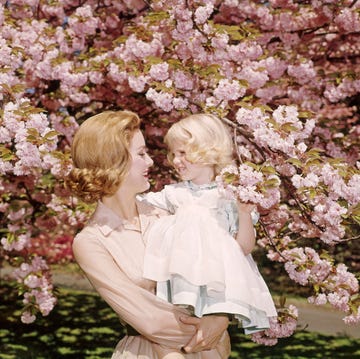My 9-year-old daughter gets $10 per month as an allowance.
Here's how we arrived at that figure: She spends the entirety of her income on Pokémon cards, and I can't stand the thought of having more than $10 worth of new Pokémon cards entering our home each month. We also give her the allowance on a monthly, not weekly, basis because I never really have cash on-hand, and I know I'll never have it together enough to remember to have enough small bills to pay her every week.
And what's her part in all of this? She has some household chores she's responsible for, but I'm never sure if I should emphasize the connection between the chores and the allowance — work hard, and you'll get paid, kid! — or if I should tell her she has to do the chores because she's a person living in our household, and we all have to do our part, in which case she gets the allowance for no reason.
None of this is scientific. It's a haphazard system put together on the fly out of necessity, so I set out to figure out what a more thoughtful approach to allowance should be.
How much allowance should kids get by age?
In his book, The Opposite of Spoiled: Raising Kids Who Are Grounded, Generous, and Smart About Money, Ron Lieber puts forth this simple formula for how to calculate allowance: Give kids $0.50 to $1 a week per year of age. By that metric, I'm grossly underpaying my daughter. I should be giving her $18 to $36 per month as opposed to $10. That's a lot of Pokémon cards.
Then again, I never set limits on what my daughter spends her money on. "Before setting an allowance policy, families should discuss parameters around what allowance money is spent on — e.g., maybe a max on Pokémon cards or VBucks — so they can plan on it," says Emily Edlynn, Ph.D., therapist and author of Autonomy-Supportive Parenting. If my daughter has more money coming in, but can still only use $10 per month on Pokémon cards, it might entice her to figure out how to budget the rest of her money and save up for something long-term.
Lieber writes that, with allowance, kids should be encouraged to split the money among three containers: spend, save and give, similar to an adult budget. "This can be more difficult to enforce as they get older and have more spending desires, but dividing the money is excellent practice for future saving and acts of generosity," Dr. Edlynn says. "In my family, we try to decide on a charity that is meaningful to us at the end of the year. My husband and I match the kids' collective donation for a nice charity gift."
And part of the reason my daughter can spend all her money on Pokémon cards is because I pay for ... everything else. If I really wanted to teach her about money, I'd make her responsible for more of the things I purchase on her behalf. For example, back-to-school season is coming up for us, and I could do well to give her a budget and tell her to buy her own new clothes or supplies. And if she blows her budget on trading cards instead? Well, she'll have to deal with ill-fitting pants until she can save up for the next shopping trip — a lesson that's better to learn at 9 than as an adult with the capability of wracking up bad credit-card debt.
And independent of allowance, I probably should try to discuss finances and budgeting more in our daily lives. For example, the next time we go to the grocery store, I could tell her my target for what I want to spend, and see if she could fill the cart with all our necessities without going over. This type of experiment would also work well for families who can't or don't want to deal with an allowance.
Should allowance be tied to chores?
I understand the reasons why chores shouldn't be tied to allowance. Chores teach my daughter skills she'll need to be a successful, independent adult. I'm not just talking about learning how to wash a dish or clear a table — which is important — but also how to manage her time, how to plan out the steps to complete the chore and how to keep in mind that she has to do her need-to-dos (cleaning up crumbs) before she can do her want-to-dos (playing Nintendo).
What's harder for me to grasp, though, is why allowance shouldn't be tied to chores. I get that giving my daughter money to do them negates a lot of the benefits of her doing them. If her $10 is for setting and clearing up the table after meals, she's doing it because I'm paying her to, not because every part of our family needs to pitch in. But if I don't pay her, she just gets that money for nothing? What message does that send?
Dr. Edlynn says that, while there's no hard evidence to support whether it's better or not to tie allowance to chores, she thinks it better to keep them separate. "First, the function of allowance is to give children opportunities to learn money management and financial skills, so if they don't do chores and don't have money, they aren't developing those skills," she says. "Second, there are crafty kids — like my own — who would find other ways to earn money and never do chores, and then they aren't experiencing the myriad benefits of childhood chores."
Fair point. If I wanted my daughter to learn music, I wouldn't begrudge getting her an instrument. Since I want her to learn how to be financially responsible, I have to give her money.
But what about learning the value of hard work? "I recommend giving kids bonus chores for the chance to earn money greater than their allowance," Dr. Edlynn says. "This summer, my bored teenager needing money for her many Starbucks outings organized several of our messy closets for extra cash." True, my daughter might have all the income she needs to keep herself in Pokémon cards. But if she wants that big-ticket item she has her eye on — the Switch 2 — she might be motivated to roll up her sleeves and grab a broom.

Marisa (she/her) has covered all things parenting, from the postpartum period through the empty nest, for Good Housekeeping since 2018; previously, she wrote about parents and families at Parents and Working Mother. She lives with her toy-collecting husband and daughter in Brooklyn, where she can be found helping out her team at bar trivia or posting about movies on Twitter and Bluesky.













